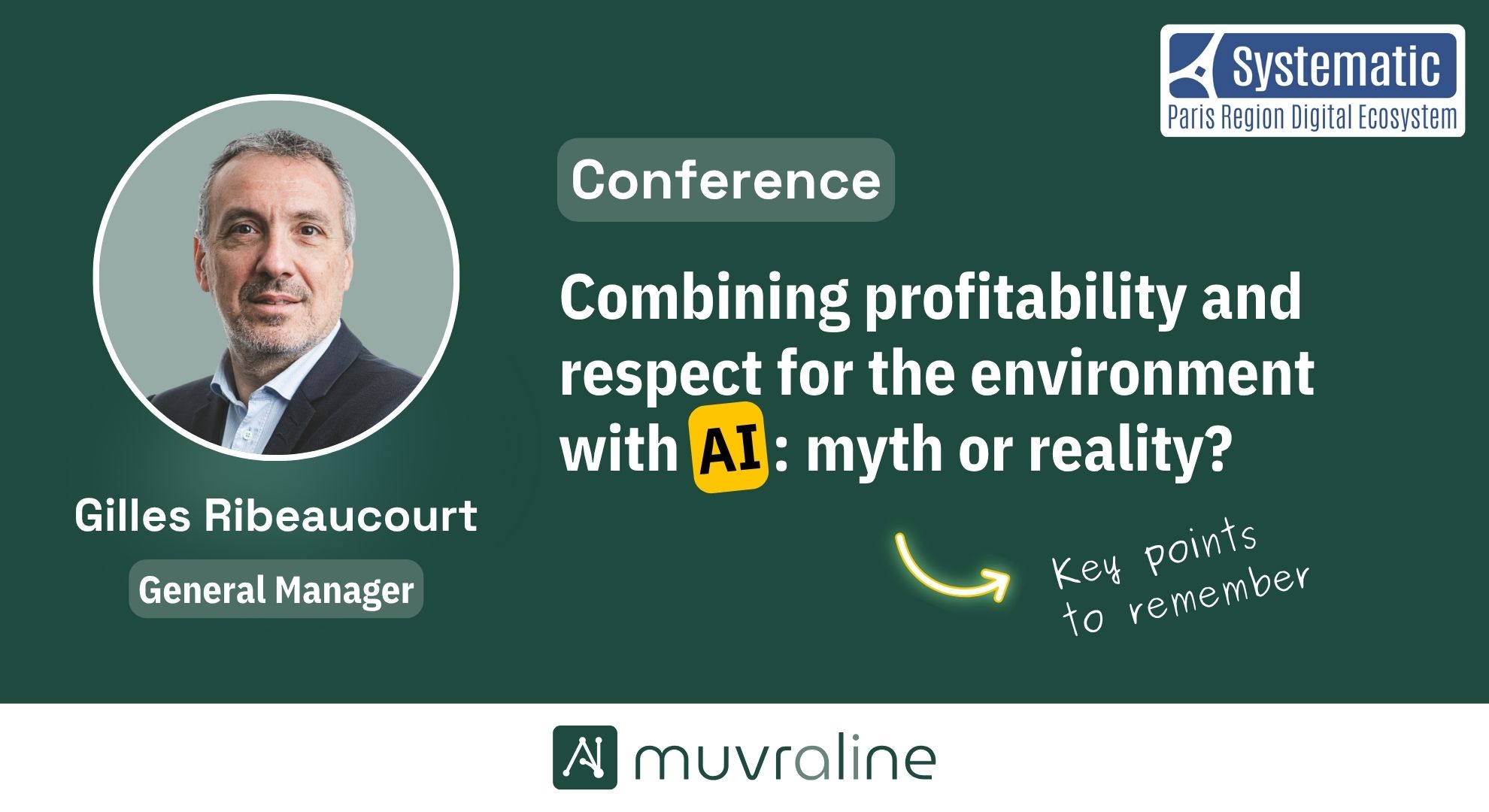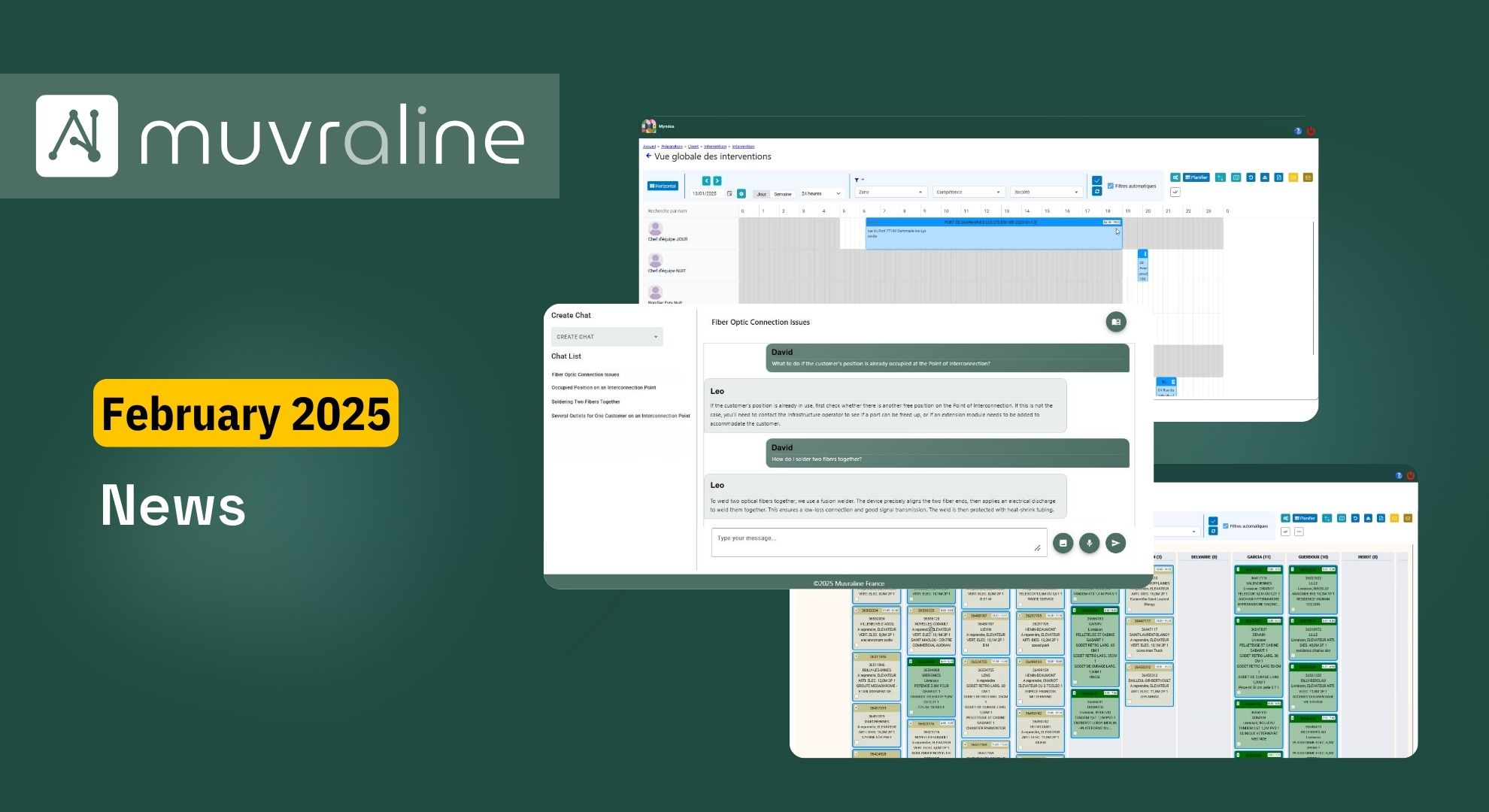Gilles Ribeaucourt, General Manager of Muvraline, gave a talk on AI and the planet to the DS&IA club of Systematic Paris-Region on Thursday April 3. He demonstrated that ensuring the profitability of a project thanks to AI while preserving the environment is indeed possible, provided that AI is managed and used responsibly. Explanations, through the prism of field operations management.
Performance and sustainability, two major compatible challenges
For companies specializing in maintenance, distribution, security or telecommunications, whose business is based on daily field rounds, combining profitability and respect for the environment can seem contradictory.
Every day, these companies face a multitude of events that disrupt their organization, and have major impacts from both an economic and environmental point of view:
- Employees who are ill,
- Customers who cancel their appointments at the last minute,
- Defective equipment or broken-down vehicles,
- Interventions that do not go according to plan and require a second visit,
- Disrupted traffic, sudden bad weather…
All these situations generate:
- Additional costs and therefore a loss of profitability,
- Excess CO₂ consumption and therefore an increased carbon footprint,
- Customer dissatisfaction
To deal with this, one effective solution is to integrate AI into field operations planning and management processes. For example, such a solution makes it possible to reschedule interventions in real time by integrating unforeseen events, while optimizing available resources (technicians, vehicles, equipment…), or to carry out quality control of operations in real time, for a maximized success rate, thus avoiding the need to return to the customer to rectify an intervention. The benefits are immediate: more interventions carried out, a higher success rate, fewer kilometers traveled, lower operational costs, and a significant reduction in CO₂ emissions.
However, poorly designed and supervised AI can quickly prove to be energy-intensive, and cancel out the environmental benefits obtained through tour optimization. For its use to be truly virtuous, it is therefore essential to adopt frugal AI, based on sober architectures, thought out to minimize energy consumption and computing resources without compromising on high levels of performance.
Muvraline, AI as a lever for sustainable performance
Muvraline, since its creation in 2018, has had this mission: to boost companies’ operational efficiency while respecting the environment. Committed to trusted, eco-responsible AI, Muvraline :
Limits the energy and resource consumption of its algorithms by using hybrid AIs (connectionist and symbolic) that are as frugal as possible, offering AI solutions such as Myndea, which help reduce the carbon footprint of economic activities.
Commits to promoting frugal AI at ecosystem level.
Myndea®, an AI-based solution for optimizing field operations
Using these principles of frugality, Myndea®, Muvraline’s solution for Field Service Management, therefore helps to improve the success rate of operations, thanks to its specific functionalities only available through AI:
- Real-time planning of operations, taking into account the actual performance of field operatives
- 1-click re-planning to integrate unforeseen events
- ChatBot support for field teams, for a maximized First Time Fix Rate
- Quality control of operations and validation in real time
Teams using Myndea® thus observe up to +15% in the number of interventions carried out, and a 25% reduction in their CO₂ emissions and fuel costs.
Muvraline commits to responsible AI within its ecosystem
Leader of Hub France IA’s Transport & Logistics Working Group, whose mission is to provide support to companies in the industry so that they make the best possible use of AI to boost their competitiveness and reduce their environmental footprint. In particular, this involves drawing up maps of AI uses and players to identify the needs and uses of AI in the sector, as well as specific AI tools.
Leader of the Working Group Operational Good Practices in Frugal AI for the First General Repository in Frugal AI piloted by Ecolab on behalf of the Ministry of Digital Transition and the Ministry of Ecological Transition.
Implementation of a frugal AI self-assessment grid to enable each company to analyze its maturity in this area.




